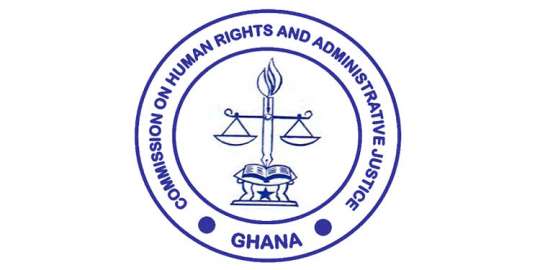The Commission on Human Rights and Administrative Justice (CHRAJ) has cautioned parents and guardians against engaging children in night work as it constituted child labour and a breach of the fundamental human rights of the child.
Ms Fatimata Mahami, Tema CHRAJ Regional Director said Section 88 (1) of the Children’s Act, 1998 ACT 560 stated that no person shall engage a child in night work.
She added that section 88 (2) also indicated that “night work constitutes working between 1800 hours and 0600 hours.”
She gave the caution on Tuesday when she appeared on the Ghana News Agency-Tema Industrial News Hub Boardroom Dialogue platform to discuss preparations for the commemoration of the 2022 International Day Against Child Labour.
The day, which is celebrated annually on June 12, will this year be observed on the theme: “Universal Social Protection to end Child Labour.” CHRAJ and the Ministry of Employment and Labour Relations are collaborating for the celebration in Ghana.
Ms Mahami said parents should ensure that their children enjoyed their childhood by not engaging them in adult work adding that keeping children by the roadside selling at night instead of sleeping was against the Children’s Act and amounted to child labour.
She described as worrying seeing a few children selling on the streets at night instead of resting, stressing that “this robs the child of their childhood rights.”
She said nobody was against the impartation of entrepreneurship skills to children as they need such social skills to grow into responsible adults, explaining however that such roles given to children must be age appropriate.
“If you are dealing in chemicals and asking a child to deal in it, or doing welding and engaging a child in it, it is child labour as it could be injurious to his health, and it is not age-appropriate,” she said.
She stressed that “if a child was on a holiday or closed from school, they could help their parents and guardians,” adding that should not be a work that would expose them to danger or affect their childhood rights.
She reminded the public that a child is anyone aged below 18 years, adding that such persons must not engage in any work that was hazardous and exploitative and would affect their education, health as well as a physical being.
Touching on the provision of the Children’s Act which indicates that the minimum age to engage a child in a work is 15 years, she said that age is not for hazardous works but for an apprenticeship.
Mr. Francis Ameyibor, Tema Regional Manager of the Ghana News Agency, on his part said issues of child labour had been with humanity for so long, adding that was the reason the Children’s Act and the 1992 Constitution both ensure the protection of children.
He said the media must also get involved in educating the public on what constituted child labour and how best it could be handled and curbed.
Mr. Ameyibor said sometimes the media in their reportage breach the protection of children by exposing the names and faces of defiled children, and sick children soliciting for support, among others.
He said such action on the part of some media institutions or journalists is unacceptable and an affront to the United Nations Conventions for the protection of the child.



